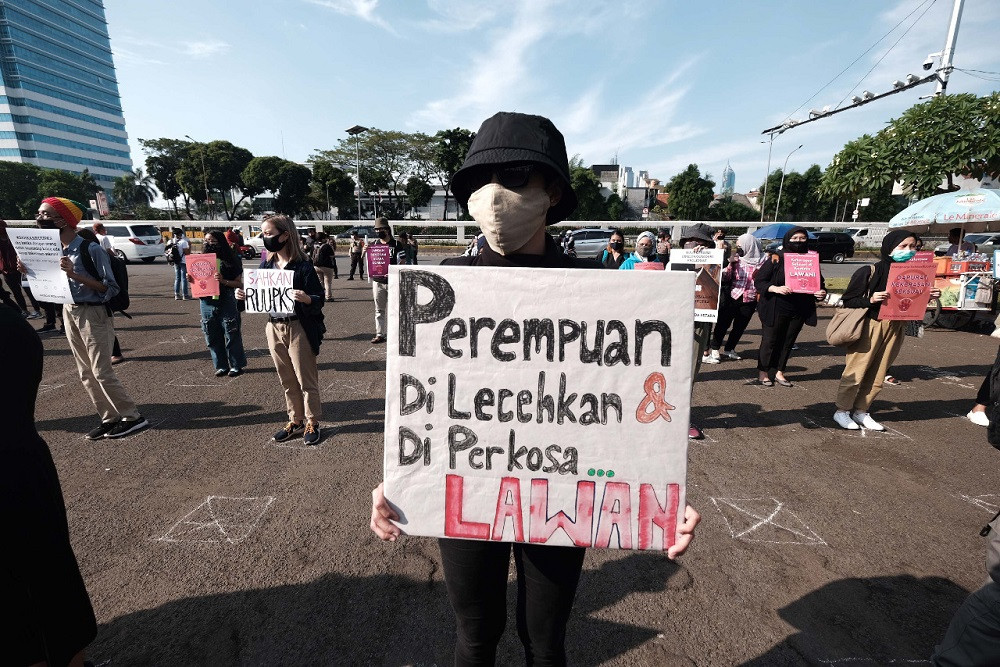Popular Reads
Top Results
Can't find what you're looking for?
View all search resultsPopular Reads
Top Results
Can't find what you're looking for?
View all search resultsCOVID-19 crisis erodes women’s rights in Indonesia: Activists
Change text size
Gift Premium Articles
to Anyone
T
he ongoing COVID-19 outbreak in Indonesia continues to disproportionately affect women, exacerbating gender inequalities that were already present in the country, women’s rights activists say.
The 40 organizations that belong to the Women’s Awakening Alliance have gathered data on women’s experiences nationwide and have found that the health crisis has intensified existing social and economic inequalities between men and women.
“The pandemic has exposed the fault lines on women’s issues in a myriad of ways,” Indonesian Legal Aid Foundation (YLBHI) chairwoman Asfinawati said in a webinar on Sunday.
Health care was one of these fault lines.
Lusi Peilouw, an activist from Ambon, Maluku, said that some pregnant women had to pay more for maternal health care because hospitals required patients to undergo COVID-19 swab and rapid tests.
“Some women were even denied labor and delivery services by the hospital because their rapid test results came back positive,” she added.
The government’s response to the pandemic has also brought unintended consequences for women.
As large-scale social restrictions (PSBB) forced people to stay at home, some women found themselves trapped with abusive partners. The Jakarta chapter of the Legal Aid Foundation of the Indonesian Women’s Association for Justice (LBH APIK Jakarta) alone received 366 reports of domestic violence between March 16 and June 30, an average of 110 reports a month.
Read also: House in hot water as critics demand resumption of pro-women bills
“Some abusers are able to go free because the regional administration ended their imprisonment because of a lack of testing facilities,” North Sulawesi activist Lily Djenaan said.
As women face increased adversity during the pandemic, lawmakers have put women’s issues on the back burner, stalling two long-awaited pieces of legislation: the sexual violence prevention bill and the domestic worker protection bill.
The sexual violence prevention bill, first proposed in 2016, was removed from this year’s National Legislation Program (Prolegnas) priority list in July. Lawmakers called deliberation of the bill “too complicated”.
“Even before the pandemic, violence against women was rampant,” Women’s Institute (Institut Perempuan) founder Valentina Sagal said. “The state should have prioritized the bill, especially during this pandemic. We need to have laws that show the government’s presence in protecting the victims.”
The domestic worker protection bill, which has been under deliberation for even longer (16 years), remains stuck in the House of Representatives Legislative Body (Baleg).
“The country does not use a gender-responsive perspective to address the COVID-19 pandemic. That’s one problem among many others in this country’s COVID-19 response,” Asfinawati said.
Valentina echoed Asfinawati’s sentiment.
“The state needs to include women in its handling of the COVID-19 crisis. Otherwise, the government’s rhetoric of protecting the country will end up neglecting women,” she said.










